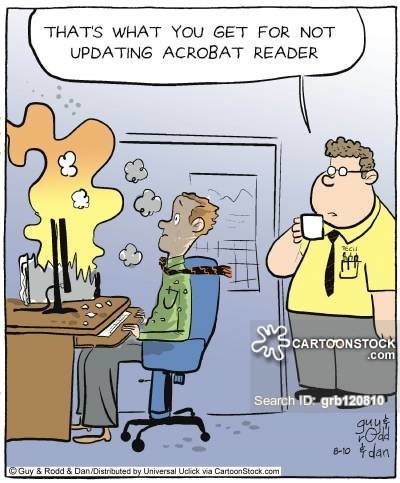
Helping Old People Become Technologically Literate
Upon entering this class, I had a feeling that I was throwing myself into the scary and unknown world of literacy that lay outside traditional and general understandings of the term (else why would there be an entire class on it?). When Kim started to explain that literacy did not come from just books but electronics, social circles, and unconventional readings, I began to understand the massive scope that this class would look into. After my initial shock, I was intrigued and pushed myself into group work that had topics I was not very well versed in like video games and rap, hoping to open up my mind and delve deeper into the unknown.
Knowing that I am aiming to be either a high school or college teacher, I have taken the entirety of the course with a mind set on conveying many ideas of this class into my future classes to encourage alternate literacy practices and reach a diverse student body. Even though I already know standardized tests are pure evil, I was surprised at the lack of correlation between countries that have high literacy rates and therefore high success. Throughout not only English classes, but history as well, we have been taught that the first step to making a country prosper is to give access to information and to teach their citizens to read. While this may help the country, the actual literacy levels of individuals are so differed that it is near impossible to judge ones textual literacy compared to another, especially in standardized form. While an ADHD child may not be able to sit and read a novel for class (resulting in a bad grade and remedial reading courses), s/he may love to read all of the history that is incorporated into a video games codex. In this way, we see Szwed’s idea of alternate literacies, accepting the black kid that loves video game’s fantasy historical texts rather than old white, unrelatable authors from Europe.
I really enjoyed my book club presentation where I was able to demonstrate the concepts of identity in a Xbox 360 game (Dragon Age II) to the class. I found it incredible how the game-player influences how the in-game character develops, because out-of-game morals that the game-player gives to the in-game-character will change outcomes and even cause different conversation options. This identity is transferred into the idea in which our minds build patterns from probing the video game’s environment. After probing the virtual environment, we observe the reaction that comes from the action and begin to form a hypothesis about the connections of both the action and reaction. Later, we reprobe and apply this hypothesis as a generalization, hoping for a similar reaction. This video game literacy directly transferred over to dealing with my parents technological difficulties during Thanksgiving break.
As I discussed in class, my parents got a new car stereo that they had little to no idea on how to operate. When they recruited me to fiddle with the system and eventually teach them the ropes, I thought to this class and began to probe the interface I was working through. By process of elimination and deductive reasoning I figured out how to connect Bluetooth, add channels, add different devices, change the EQ, and attach a remote. My parents were astounded until I also helped them figure out the Jacuzzi (which was relatively easily understood in comparison to the stereo). Before I was able to give them crap for their lack of technological literacy I realized that my generation has grown up in an era of growing technology usage, while my parents were introduced to the same medium at a much less impressionable time on their life.
After helping my illiterate parents I have come to realize that I have been navigating PC settings, Playstation game menus, and other such technical electronic mediums since I was very young. This constant exposure has helped me to build hypothesis and look for generalities within different programs. As it is difficult to mess up electronics permanently (due to the ever useful reset/restore button), I had a much more experimental and patient mindset compared to my parent’s short-tempered attempts that end in yelling. I’d have to say this is because I played the same level of Dragon Age II probably 45 different times before I could actually win.
I really loved having this class and I hope you have a great time on sabbatical this coming year! This class has been awesome and I may choose between this or rhetoric studies for my graduate and doctorate focus.

 Website:
Website: